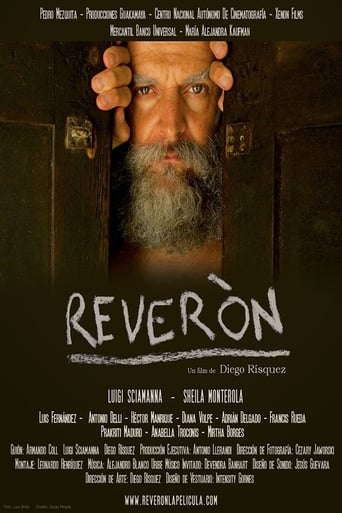

In the film work of Diego Rísquez there are two main phases that illustrate his approach to cinema. His early work is dominated by experimentation, the use of alternative formats as Super 8, and narratives that do not conform to the traditional story telling techniques. Then there is his mature work, that includes as of today three features dedicated to personalities of the history of Venezuela: Manuela Sáenz, Francisco de Miranda and -in this case- painter Armando Reverón (or Reveròn, as he signed his works), an artist who offers the filmmaker the possibility of combining all his concerns. Being an artist himself, Rísquez had been attracted before to Reverón, being the subject of one of his first short films. Now, he concentrates on the last years of his life, since he met his wife, Juanita, to his untimely death in the 1950s. There were many moments in Reverón's later life that begged for visual illustrations, and Rísquez took advantage of them with a plethora of images that show the painter's passion for Juanita, for his surroundings and for his art, that evoke his time and circle of friends. Although there are times, as when friends discuss politics, that affect the global effect, these are minor complaints. With sensual songs, lavish cinematography by Cezary Jaworski that echoes Reveron's paintings, and very good performances by Luigi Sciamanna (as Reverón), Sheila Monterola (as Juanita, beautifully illustrating "a maraca smile") and Luis Fernández (as Nikolai Ferdinandov), "Reveròn" is a very good film that I highly recommend.
... View More